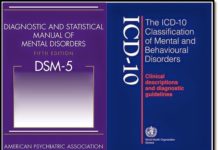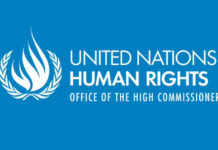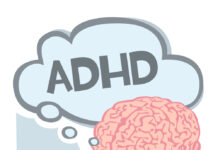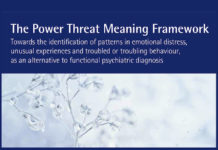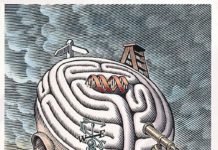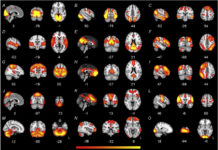Developing Alternatives to the DSM for Psychotherapists
A new article suggests counselors and psychotherapists are dissatisfied with current diagnostic systems and outlines some potential alternatives.
United Nations Statement Criticizes Medicalization of Depression on World Health Day
"There is a need of a shift in investments in mental health, from focusing on 'chemical imbalances' to focusing on 'power imbalances' and inequalities"
The DSM-5 Field Trials: Inter-Rater Reliability Ratings Take a Nose Dive
The American Journal of Psychiatry (January, 2103) recently published a series of articles that analyzed the outcomes of the field trials that were conducted by the DSM-5 Task Force, to determine the inter-rater reliability of the multiple diagnostic categories that will comprise the DSM-5. A table below tracks the downward progression of inter-rater reliability from DSM-III through DSM-5.
Why the Rise of Mental Illness? Pathologizing Normal, Adverse Drug Effects, and a Peculiar...
In just two decades, pointing out the pseudoscience of the DSM has gone from being an “extremist slur of radical anti-psychiatrists” to a mainstream proposition from the former chairs of both the DSM-3 and DSM-4 taskforces and the director of NIMH. In addition to the pathologizing of normal behaviors, another explanation for the epidemic — the adverse effects of psychiatric medications — is also evolving from radical to mainstream, thanks primarily to the efforts of Robert Whitaker and his book Anatomy of an Epidemic. While diagnostic expansionism and Big Pharma certainly deserve a large share of the blame for this epidemic, there is another reason.
Constructing Alternatives to the DSM: An Interview with Dr. Jonathan Raskin
Dr. Raskin discusses psychotherapists’ dissatisfaction with current psychiatric diagnostic systems and explores alternatives.
Mental Health Professionals Critique the Biomedical Model of Psychological Problems
While a great deal of the excitement about advances in psychological treatments comes from the potential for research in neuroscience to unlock the secrets of the brain, many mental health experts would like to temper this enthusiasm. A special issue of the Behavior Therapist released this month calls into question the predominant conception of mental illnesses as brain disorders.
Lancet Psychiatry’s Controversial ADHD Study: Errors, Criticism, and Responses
Amid calls for a retraction, Lancet Psychiatry publishes articles criticizing the original finding and a response from the authors.
Psychiatric Diagnosis Can Lead to Epistemic Injustice, Researchers Claim
A discussion of the role of epistemic injustice in the experiences of patients diagnosed with psychiatric disorders.
The Power Threat Meaning Framework One Year On
The team that developed the Power Threat Meaning framework as a diagnostic alternative reflects on the response to the framework after one year.
Researchers Make a Case for a “Theory of Nothing” in Psychology
What meaning do psychological constructs really hold, and how are they operationalized and statistically modeled within psychology research?
How Stigma and Social Factors Drive the Negative Health Outcomes Associated with Autism
A new study explores the interplay between social stress and quality of life for individuals self-identified with high-functioning autism.
How Reliable is the DSM-5?
More than a year on from the release of DSM-5, a Medscape survey found that just under half of clinicians had switched to using the new manual. Most non-users cited practical reasons, typically explaining that the health care system where they work has not yet changed over to the DSM-5. Many, however, said that they had concerns about the reliability of the DSM, which at least partially accounted for their non-use. Throughout the controversies that surrounded the development and launch of the DSM-5 reliability has been a contested issue: the APA has insisted that the DSM-5 is very reliable, others have expressed doubts. Here I reconsider the issues: What is reliability? Does it matter? What did the DSM-5 field trials show?
Will Psychiatry’s Harmful Treatment of Our Children Bring About Its Eventual Demise?
The safety of our children is a sacred obligation we strive to preserve. Anything or anyone that harms them becomes the object of our...
Mental Health Concerns Not “Brain Disorders,” Say Researchers
The latest issue of the journal Behavioral and Brain Sciences features several prominent researchers arguing that mental health concerns are not “brain disorders.”
United Nations Report Calls for Revolution in Mental Health Care
In a new report, the United Nations Special Rapporteur on the right to health, Dr. Dainius Pūras, calls for a move away from the biomedical model and “excessive use of psychotropic medicines.”
Mental Health Professionals and Patients Often Disagree on Causes of Symptoms
A new study finds that clinicians’ disregard for mental health patients’ insight into their own condition may be detrimental to treatment.
Why Paul Steinberg Has It All Wrong (and Should Stop Seeing Patients)
(This commentary originally ran on Beyond Meds)
In his New York Times op-ed entitled “Our Failed Approach to Schizophrenia“ Paul Steinberg, a psychiatrist in private practice, proposes we...
Schizophrenia Subtypes Disappearing From the Literature
Schizophrenia Bulletin publishes a review of published articles that finds the use of schizophrenia subtypes (Catatonic, Disorganized, Paranoid, Residual & Undifferentiated), "while widely used...
The Psychopathology of American Life
‘I’m severely depressed.’
These were the words that Donesha*, a 35 year-old African American woman repeatedly uttered to me.
DSM Panels Rife With Conflicts of Interest
Safeguards ostensibly put in place to ensure "a transparent process of development for the DSM," and an "unbiased, evidence-based DSM, free from any conflicts...
No Brain Connectivity Differences Between Autism, ADHD, and “Typical Development”
Neuroscience researchers find no differences in brain connectivity between children with diagnoses of autism, ADHD, and those with no diagnoses.
Sociologist Explores the DSM-5’s Failed Attempt at Validity
In a new article for the journal Social Science & Medicine, sociologist Owen Whooley investigates how the DSM-5 creators failed in their attempt to...
The Effect of Psychiatric Diagnosis on Young People’s Sense of Self and Social Identity
A new review highlights the effects that psychiatric diagnosis has on children and adolescents’ social relationships and views of self.
Why the Fuss Over the DSM-5, When Did the DSM Start to Matter, &...
Why all the fuss over DSM-5? Why did Robert Spitzer, the editor of DSM-III, begin to protest about the “secrecy” surrounding its production as early as 2007? Why did Allen Frances, editor of DSM-IV, begin in 2009 to challenge the American Psychiatric Association’s (APA) announced goal that when making DSM-5 “everything is on the table”? Why did he dispute the APA’s position that there had been enough progress in neuroscience to call for a “paradigm shift”, and why did Frances and others go on to protest repeatedly what they viewed as DSM-5’s “medicalization of normality?”
The Problem with PTSD
“The voices, they tell me they gonna kill me, and it’s my fault.”
“Sometimes, when we hear voices, they just reflect our own anxieties, sometimes they can echo things we’ve been told in the past. When the voices tell you that they’re going to kill you, does that echo anything you may have been told in the past?” I ask.

